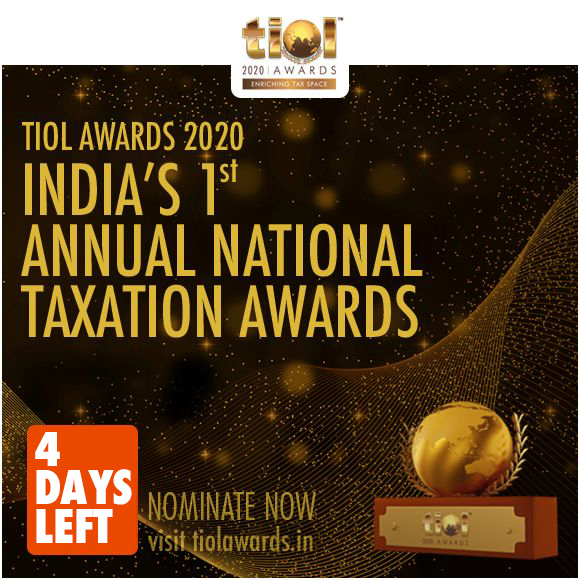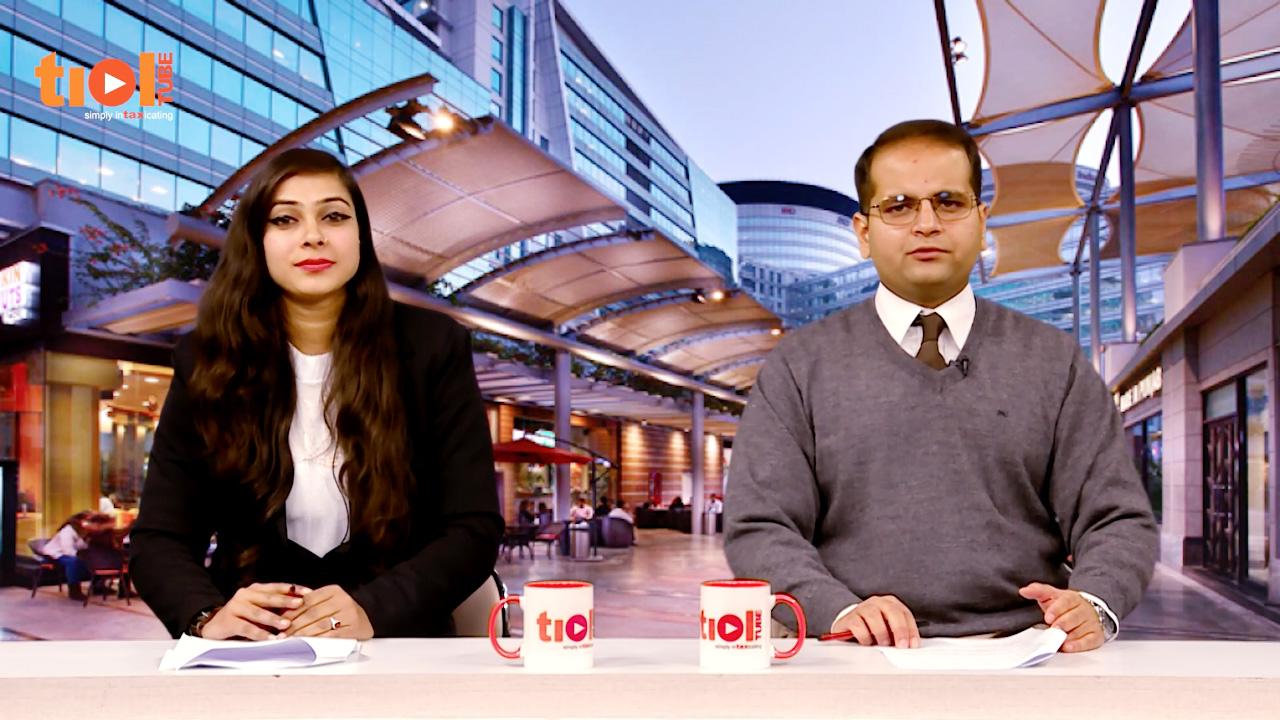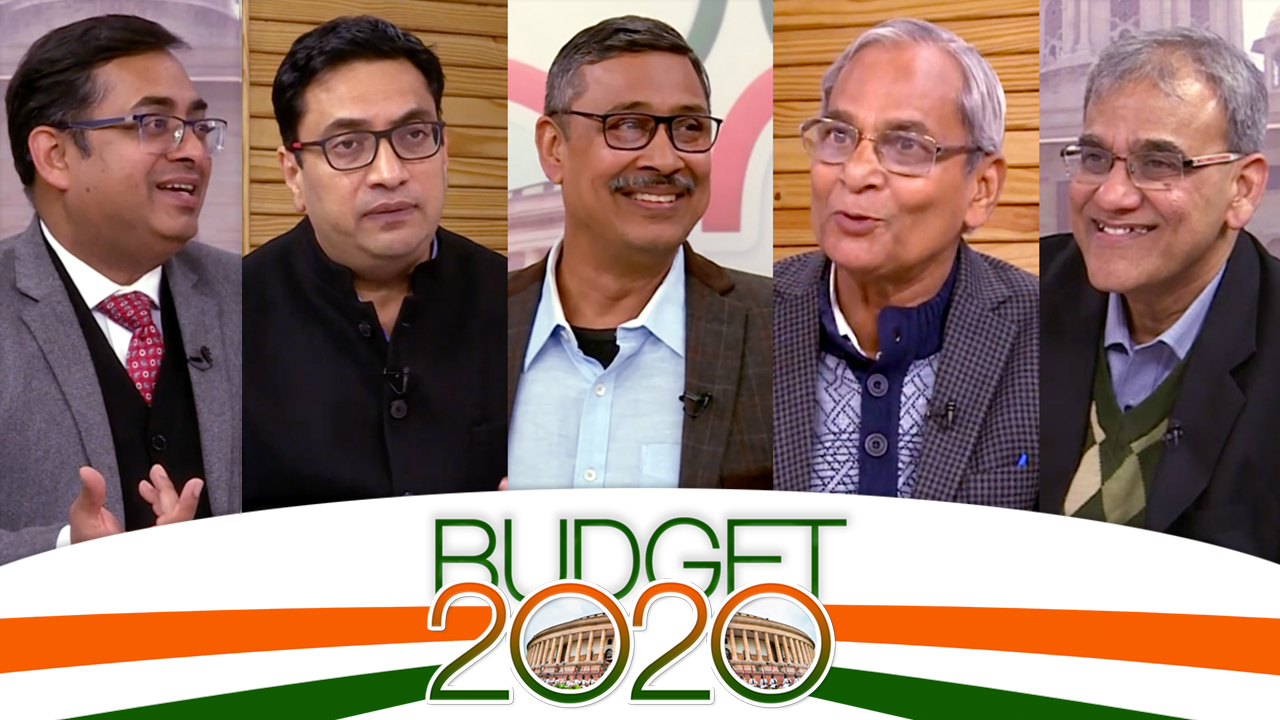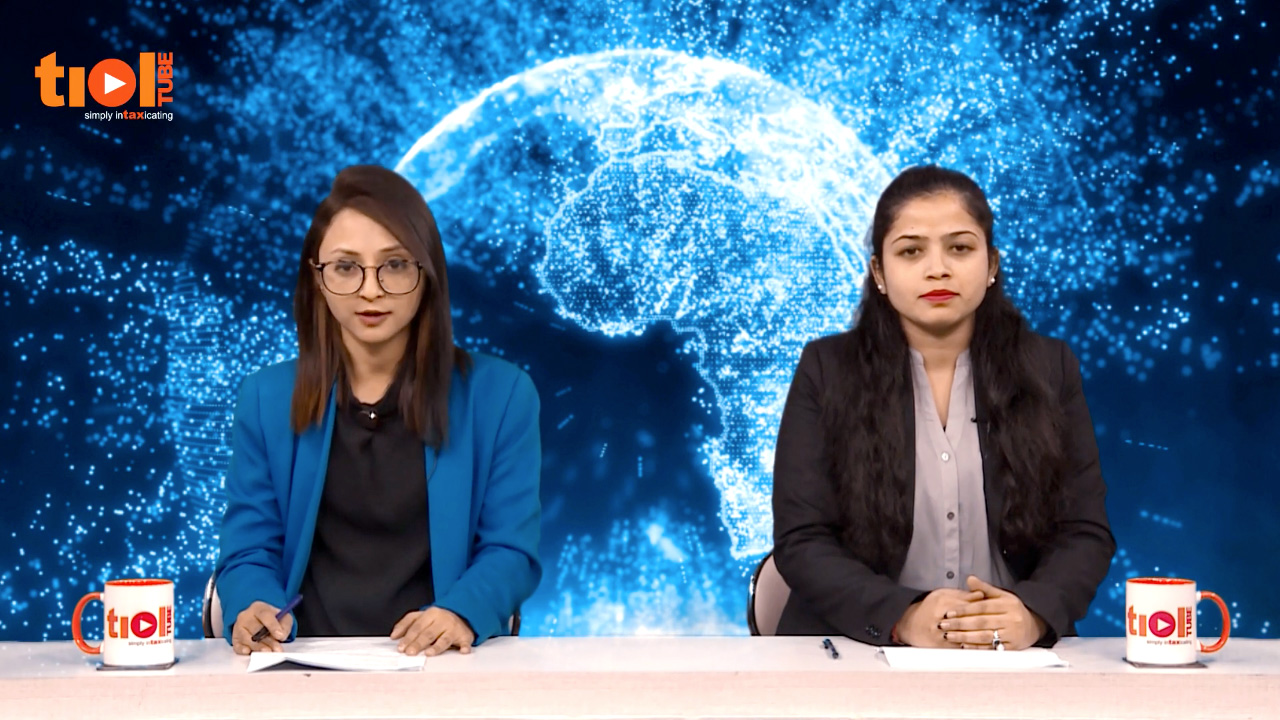|
SERVICE TAX
2020-TIOL-183-HC-MAD-ST
GE T And D India Ltd Vs Dy.CCE
ST - Terms of employment of the petitioner company include a stipulation for a notice period prior to quitting by an employee from employment, ranging from two to three months - an option is provided to the employees to the effect that if they are not in a position to stay and serve out the notice period, then in lieu of the same, the employee will be required to pay the equivalent pay of salary for the period for which notice was not served - Petitioner had received certain amounts in lieu of notice period from outgoing employees - Revenue was of the view that this amount would attract service tax on the ground that the petitioner had facilitated the termination of employment and thus a category of service entitled and described as ‘facilitation of termination of employment' was carved out by the assessing officer - proposals were confirmed vide impugned orders dated 30.06.2016 and the same are challenged herein - According to the respondent Revenue, the petitioner has 'tolerated the act' of immediate quitting from service by the employees and such agreement/toleration results in the rendition of a taxable service.
Held: Provisions of s.66E(e) of the Finance Act, 1994 appear to have given rise to some ambiguity - on this very issue, the CBEC in Guidance Notes dated 20.06.2012, at paragraph 2.9.3 has clarified in the negative to the question "Would amounts received by an employee from the employer on premature termination of contract of employment be chargeable to service tax"- the query raised in the said clarification relates to a contra situation, one, where amounts have been received by an employee from the employer by reason of premature termination of contract of employment and the taxability thereof - Board has answered in the negative pointing out that such amounts would not be related to the rendition of service - Equally so, in the view of the Bench, the employer cannot be said to have rendered any service per se much less taxable service and has merely facilitated the exit of the employee upon imposition of cost upon him for the sudden exit - definition in clause (e) of Section 66E is not attracted to the scenario at hand - in the view of the Bench, the employer has not ‘tolerated' any act of the employee but has permitted a sudden exit upon being compensated by the employee in this regard - Notice pay, in lieu of sudden termination, however, does not give rise to the rendition of service either by the employer or employee - since the matter involves an interpretation of the statutory provision in the light of disputed facts available on record, Bench sees no need to relegate the petitioner to statutory appeal, hence this plea by the counsel of Revenue is rejected - Writ petitions are allowed: High Court [para 10 to 12, 14] - Petitions allowed: MADRAS HIGH COURT
2020-TIOL-189-CESTAT-DEL
Quick Heal Technologies Ltd Vs CST
ST - The assessee-company is engaged in research & development of antivirus software under the brand name of Quick Heal - It claimed that its USP was to not just eliminate existing viruses from the computer system but also ensure a virus-free environment for functioning of the computer system - Thus all anti-virus developers must ensure continuous surveillance on viruses, malware and spam, which is achieved by providing continuous updates to virus definitions - The assessee claimed that in the disputed period, the anti virus software was developed by three entities for the assessee, in a ready-to-sell condition, mentioning the key number and MRP - Being canned software does not entail that it is created for a particular customer - Hence it was treated as goods and was subjected to sales tax and VAT, in which case, no service tax was to be paid - The software was thus sold by the manufacturers to the assessee upon payment of VAT only - These were then transferred by the assessee to various sales offices of the assessee, from where the ultimate sale took place on payment of applicable VAT in the respective states - the assessee claimed that such activity was undertaken from Pune by sending the Master CD to replicators who replicated the CD and supplied them to varous branches of the assessee, where the CDs were packed in boxes bearing the license - The assessee paid Excise duty on such pre-packaged antivirus software - During the period of dispute, the jurisdictional Central Excise authorities opined that each of the sales officers where the software was packed, had to obtain separate registration and pay Excise duty from each sales office situated in different parts of the country and not from the main office at Pune - The assessee shifted such activities to different units - An SCN was issued, proposing to raise duty demand with interest & penalty - It was alleged that the assessee supplied antivirus software codes to end users through dealers/distributors without payment of service tax on such transactions - It was further stated that the end user was provided with a temporary/non-exclusive right to use the antivirus software as per the conditions in the End User License Agreement EULA and would therefore, not be treated as deemed sale under Article 366(29A) of the Constitution - Hence it was reasoned that supply of packed software to the end user by charging license fee, is tantamount to providing service & is not sale - The SCN proposed duty demand with interest & penalty for supplying Antivirus software license key along with the Antivirus software replicated CDs/DVDs in retail packs through dealers - Hence the present appeal.
Held - The anti-virus software developed by the assessee is complete in itself to prevent viruses in the computer system - Once the computer system is booted, the Software begins the function of detecting the virus, which continues till the time the computer system remains booted - The computer system only displays a message that viruses existed and that they have been detected and removed - No interactivity takes place nor there is any requirement of giving any command to the software to perform its function of detecting and removing virus from the computer system - It is also seen from the meaning assigned to 'interactive' that a program should involve the user in the exchange of information - There must be action and communication between the two - A user should communicate with the computer facility and receive rapid responses, which can be used to prepare the next inputs - In contract, in other softwares like ERP, EXCEL, MS Word, there is continuous interaction between the user and the computer system and these softwares perform only after receipt of input from the user - In such circumstances, no service tax can be levied u/s 65(105)(zzzze) prior to 01.07.2012 - Even after such date, the definition of Information Technology Software u/s 65B(28) remained the same and no service tax was leviable: CESTAT
Held - It is clear from the decision of the Apex Court in Tata Consultancy Services v/s State of Andhra Pradesh that intellectual property, once put on the media and marketed, could become 'goods' and that a software may be intellectua property & the same contained in a medium is purchased and sold in various forms, such as CDs - Section 65B(44) of the Act also excludes from the scope of 'service', any activity which constitutes merely such transfer, delivery or supply of any goods, which is deemed to be sale within the meaning of Article 366(29A) of the Constitution - As it is, the Apex Court in Tata Consultancy Services v/s State of Andhra Pradesh held that canned software supplied in CDs would be 'goods' attracting Sales Tax/VAT and that no service tax could be levied - Also considering the relevant provisions of the CBEC Education Guide for Service Tax, it is seen that after making a reference to the judgment in Tata Consultancy Services v/s State of Andhra Pradesh it mentions that a transaction would be in the nature of sale of goods when a pre-packaged or canned software is sold & no service tax would be leviable - However, a license to use the software which does not involve the transfer of 'right to use' would neither be a transfer of title in goods nor a deemed sale of goods - Such activity would qualify as a service - Thus if a pre-packaged or canned software is not sold but is transferred under a license to use such software, the terms and conditions of the license to use such software would have to be seen to arrive at a conclusion whether the license to use the packaged software involves transfer of right to use such software in the sense as such phrase was used in Article 366(29A)(d) of the Constitution - The guidelines also provide that in case a license to use pre-packaged software imposes restrictions on the usage of such licenses, which interferes with the free enjoyment of the software, then such license would not result in transfer of right to use the software within the meaning of Article 366(29A) of the Constitution - However, every condition imposed will not make it attract service tax - The condition should be such so as to restrain the right to free enjoyment on the same lines as a person who has otherwise purchased goods is able to have - The agreement provides that the licensee should have the right to use software subject to terms and conditions mentioned in the agreement - The licensee is entitled to use the software from the date of license activation until the expiry date of the license - The licensee is also entitled for the updates and technical support - The conditions set out in the agreement do not interfere with the free enjoyment of the software by the licensee - Merely because Quick Heal retains title and ownership of the software does not mean that it interferes with the right of the licensee to use the software - Thus the transaction in the appeal results in the right to use the software and would amount to deemed sale - The Revenue's contention that the transaction would not be covered under Article 366(29A)(d) cannot be accepted - Hence the O-i-O in challenge cannot be sustained and merits being set aside: CESTAT
- Assessee's appeal allowed: DELHI CESTAT
2020-TIOL-188-CESTAT-BANG
Wipro Finance Pvt Ltd Vs CCT
ST - The assessee-company provided non-banking financial services and was engaged in activity of Renting of Immovable Property to commercial concerns, but was not discharging the applicable service tax - The assessee accepted the liability as determined for the relevant period and discharged the same - It was also observed that the assessee had not paid the interest liability on the same towards delayed payment u/s 75 of the Finance Act 1994 - An SCN was issued proposing duty demand with appropriate penalty - On adjudication, such demands were confirmed, the duty already paid was appropriated and equivalent penalty u/s 78 was imposed - On appeal, such findings were upheld by the Commr.(A) - Hence the present appeal.
Held - It is seen that service tax for the period June-August 2007 was discharged by the assessee on 25.10.2012, prior to the stipulated date - Further, it is seen that the assessee paid some amount of service tax in excess and subsequently for the period of July 2010 to August 2012, the assessee paid an amount as interest - Therefore, considering the Tribunal's decision in Gulmohar Park Mall Pvt. Ltd. Vs. CCE, Ahmedabad-I and in Indiabulls Properties Pvt. Ltd. Vs. CCE, Mumbai the assessee is liable to pay interest from June 2007 to June 2010, considering that the assessee already paid interest from July 2010 to August 2012 - Since the assessee already paid excess amount of service tax in October 2012, the same can be appropriated towards interest liability - As the amount of interest has not been calculated, the matter is remanded to the original authority for quantification of the same for the period between June 2007 to June 2010: CESTAT
Held - Penalty - The assessee paid the duty within the stipulated period as prescribed in the amendent which was given retrospective effect - Before the amendment, there was dispute regarding the taxability of renting of immovable property service and the issue has not yet been settled and the matter is still pending before the Apex Court against the decision of the Full Bench of the Delhi High Court - In such circumstances, the penalty imposed is unwarranted: CESTAT
- Assessee's appeal allowed: BANGALORE CESTAT
CENTRAL EXCISE
2020-TIOL-187-CESTAT-MUM
CCE, C & ST Vs Trl Krosaki Refractories Ltd
CX - The assessee-company is engaged in the manufacturing excisable goods falling under Chapter 69 and 38 of CETA, 1985 - During the relevant period, the assessee availed Cenvat credit on various items that is MS Angles, channels, flats, beam, CR coils, HR sheets, welding electrodes, as input or capital goods - 9 SCNs were issued to the assessee proposing to deny Cenvat credit as the Department felt that the items did not appear to be eligible as inputs or capital goods under Rule 2 (k) and Rule 2 (a)(A) of Cenvat Credit Rules, 2004 - Penalties were imposed u/r 13 of Cenvat Credit Rules 2002/Rule 15 of Cenvat Credit Rules 2015 - The SCN was adjudicated by the Commissioner whereupon some amount of credit was disallowed along with interest while imposing equal penalty. Hence these appeals.
Held - While it is held that credit is available to the assessee on various items claimed by them, such a claim is not absolute - In order to justify the claim the assessee has to prove the receipt, storage and consumption of such inputs/capital goods in the manufacture of final products or intermediate products used in the final products - The Commissioner has found that the assessee, at the time of availing the exemption contained under Notfn 67/95, have not given any indication of the capital goods captively manufactured and used - Such benefit, if otherwise available to the assessee cannot be denied only for the reason that they have not indicated at the time of availing - While it is held that the credit of disputed items is eligible to be availed, when used as inputs or capital goods used in the manufacture of final products, it is also incumbent upon the assessee ve to the satisfaction of the proper officer that such inputs/capital goods have been purchased and utilised in the factory - In the absence of such records credit cannot be given just on the claim of the assessee - As per the records made available, the Bench is not in a position to arrive at the fact as to whether the assessee have produced any record of receipt and usage of the inputs in its factory - Nonetheless, the assessee made a strong case on merits - Therefore the issue requires to go back to the original Authority to allow credit, after going through records that may be submitted by the assessee - The Original Authority shall allow such credit without going into the merits of the case, on production of reasonable proof by the assessee showing the receipt and utilization of such inputs, the credit of which has been denied in the O-I-O - Such exercise be completed in 12 weeks' time: CESTAT
- Case remanded: MUMBAI CESTAT
CUSTOMS
2020-TIOL-186-CESTAT-MUM
Falcon Cargo Services India Pvt Ltd Vs CC
Cus - Alleged mis-declaration of 'sea going vessel' - this appeal arises out of forfeiture of security deposit furnished by the appellant, a custom house agent, ordered under regulation 22(7) and 20(1) of Custom House Agent Licensing Regulations, 2004 in the impugned order and seeks relief on the ground that the authority had been influenced by the outcome of the proceedings initiated therein against the importer and others, including the appellant herein, for imposition of penalties under section 112 of Customs Act, 1962.
Held: From the findings of the licensing authority, it is clear that the case against the custom broker is dependent entirely on the variance with the description found in the certificate issued by the Registry of Indian Ships as well as the certificate issued by the Fiji Shipping Registry - the Bench is unable to arrive at the same conclusion as the licensing authority that the description in these two documents would indicate the classifiability of the vessel as 'tugs' - on the contrary, the inclusion of 'supply vessel' in the description is equally ambiguous in deciding upon the classification - it was, therefore, an overreach on the part of the licensing authority to conclude that description made in the documents, despite the possession of these two certificates, indicate a deliberate attempt to mislead - there is no adducing to any other motive for erroneous declaration in the bills of entry -in the proceedings under Customs Act, 1962, the custom house agent has been cleared of all allegations - in view of above, circumstances of the foundation of the allegation having failed, no reason found to sustain the impugned order which is set aside -appeal is, accordingly, allowed : CESTAT [para 6, 8]
- Appeal allowed: MUMBAI CESTAT
2020-TIOL-175-HC-DEL-CUS
Narendra Kumar Jain Vs JCC
Cus - During the period of dispute, 60 Gold bars were seized from the petitioner - SCN was issued had already been issued by the Revenue for confiscation of the Gold bars and to impose penalty - The process of adjudication of the SCN had already been started and is pending completion - During pendency of the adjudication process, the present writ petition was filed, seeking to correct the methodology of adjudication.
Held - The adjudication process cannot be interfered with because it is left on the discretion and wisdom of the Revenue authorities and with the expectation that they would follow the law, rules, regulations and Government policy as applicable to the facts of the case - The authorities concerned would also keep in mind the judgments rendered by the Supreme Court and by the High Courts - Further, if any daily orders have been passed, such order sheets be supplied to the petitioner after following due procedure - Petition disposed of with such directions: HC
- Writ petition disposed of: DELHI HIGH COURT
|
|








